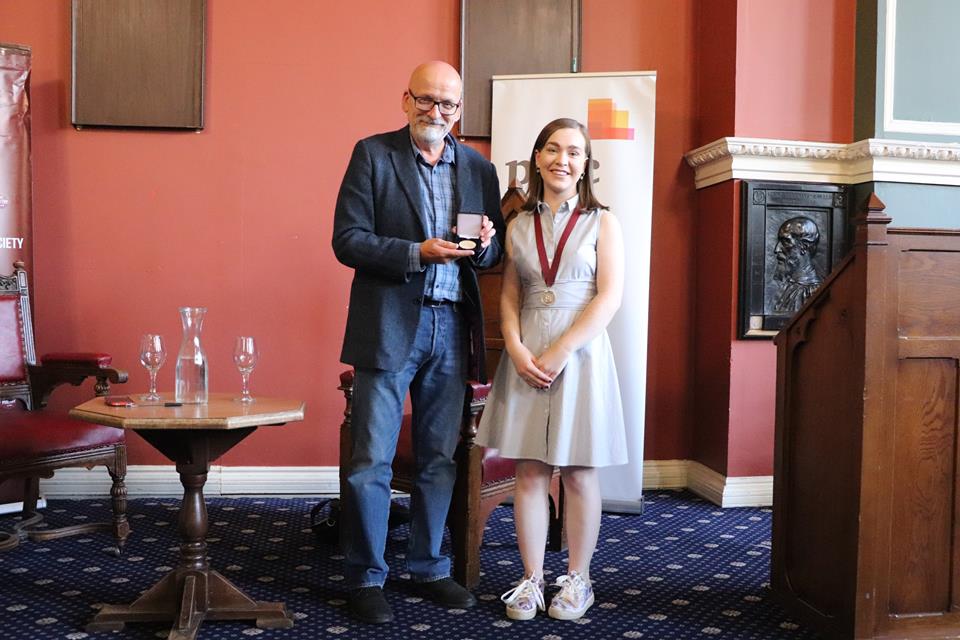Yesterday, the Phil’s first guest speaker of the term, Roddy Doyle, was awarded the Philosophical Society’s Gold Medal, becoming an Honorary Patron. Winner of the Booker Prize and famous for his unapologetic illustration of the working class Dubliners, he is a cherished Irish novelist, dramatist and screenwriter. Interviewed by the President of the Phil, Sorcha Ryder, this marked the beginning of an exciting year for the Phil society and a promising gauge of the quality of events the society will have to offer.
At 1pm, we all gathered in the GMB and awaited Doyle’s arrival. It admittedly does not take much to astound a bewildered fresher like me, however, it’s hard to dismiss the sense of prestige that exudes from the GMB halls and the thrill of knowing you will be in the presence of one of your favourite authors in a matter of minutes. You could sense the anticipation in the room slowly mounting, as we all rose to applaud his entrance. However, when the interview began, Doyle emanated such lightheartedness and humility that the room felt instantly at ease.
Ryder dove straight into his writing background, asking him what sparked his initial enthusiasm to write. Taught by his mother to read, much later than other children, he soon became an avid reader, reading sometimes more than four books at a time. Doyle divulged to praise the joys of reading, describing it as a “precious thing”, which seemed particularly appropriate as we sat within Trinity’s library-laden campus. There was a nod of consensus throughout the audience as he said, “none of us would be here if it wasn’t for reading”.
The conversation was lively, honest and compelling. While engaging seriously with Ryder’s questions, the wit so blatant in his style of writing became clear as being an integral part of his charm. Doyle never strayed too far from the topic at hand as he meandered through personal anecdotes and witty reminiscences.
An interesting line of questioning was to do with his role as a writer and the duties of having a platform to voice the social issues within Ireland. When asked if he considers himself a spokesperson for those minorities and victims of social disarray that are represented in his books, his modesty again came to the fore as he retorted, “I could barely be a spokesperson for myself!” He imparted later that he considers it a “good day’s work” if he can encourage people to start a conversation and relieve the stigma surrounding the social concerns of the day.
His yet to be released movie, ‘Rosie’, comments on the homelessness crisis in Ireland. He took us through the creative process. When hearing a piece on the radio about the struggles of a woman’s search for accommodation, Doyle was inspired to tell a story of a woman and her four kids in search of temporary accommodation for the night. The film, which he is “very pleased”, is sure to challenge and entertain, in line with all his previous creative feats.
As the talk came to a close, Doyle related his sense of gratitude, how he feels lucky that his work, such as Snapper, is still appreciated and loved. Though I was slightly disappointed we didn’t get an in-depth, critical analysis of his all-time classic, “The Giggler Treatment”, this was no doubt an enriching insight into the life and work of Roddy Doyle, and a fascinating exploration into the intricacies of the Irish literary world.






